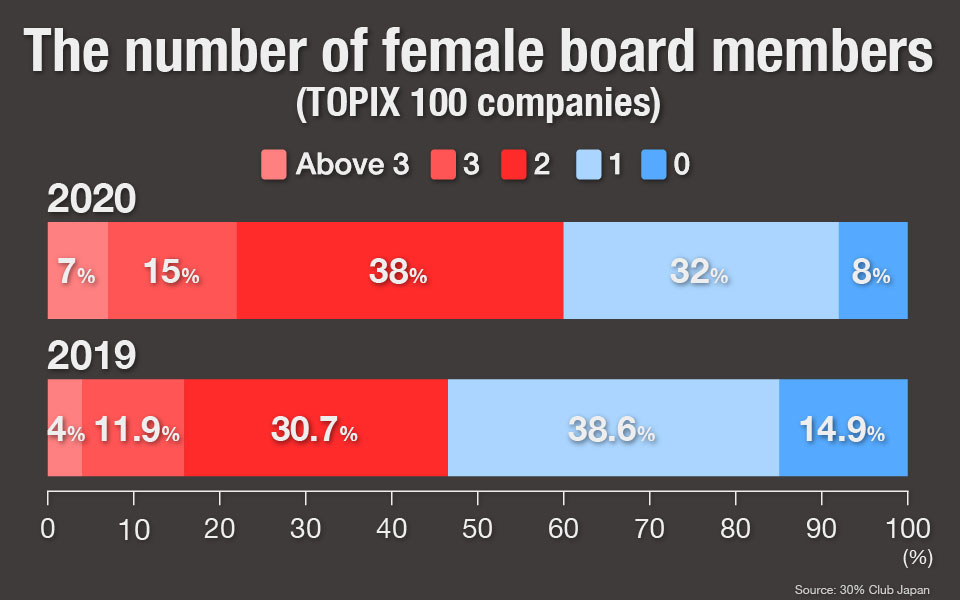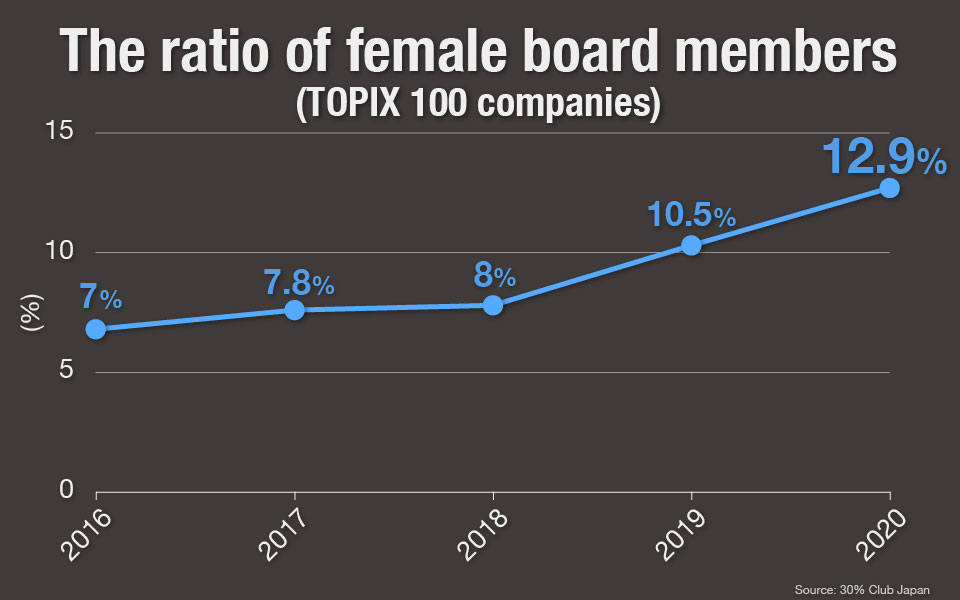A recent survey by the "30% Club Japan," a group that's working to achieve greater female leadership in business, found that more than half of the companies listed on the TOPIX100 — the 100 companies with the highest market capitalization on the Tokyo Stock Exchange — now have two or more female board members.

The survey also found that the TOPIX100 companies had an average of 12.9% of female board members as of the end of July. The percentage of female board members in Japan is small, compared to the UK’s 33%, 28% in the US, and Malaysia’s 26%. Still, it’s 2.4 percentage points higher than the previous year. The group aims to raise that figure to 30% by 2030.

Two factors driving the change are a 2018 revision of the corporate governance code, and a push from institutional investors. The corporate governance code says companies should promote diversity of personnel, including the active participation of women. Many investors now refuse to approve boards without female members.
Michiko Tadamatsu, founder of the 30% Club Japan, says that a long road still lies ahead, but the key is to keep pushing for more female representation. She says that the very first steps may be small, but they will eventually lead to a bigger leap toward female empowerment.
Still, Japan needs to speed up the pace of bridging the gender gap in many areas. The government had set a target of raising the ratio of women in managerial positions to 30% by 2020. But recently it decided to delay that target by up to a decade.
The newly appointed Cabinet led by Prime Minister Yoshihide Suga has only two female ministers. And Japan ranks 121st out of 153 countries when it comes to gender equality, according to a survey by the World Economic Forum.

